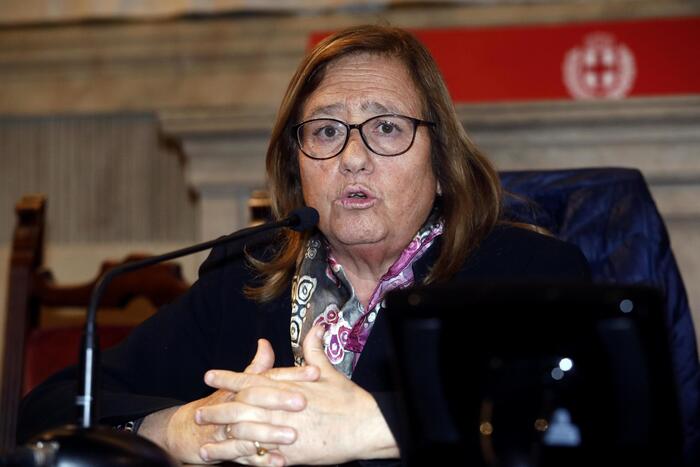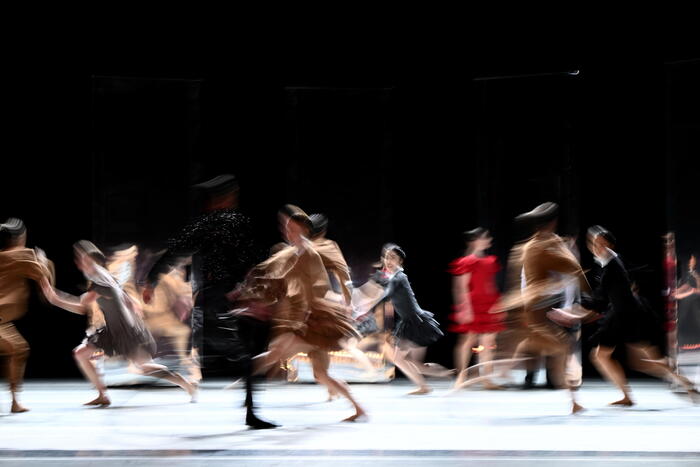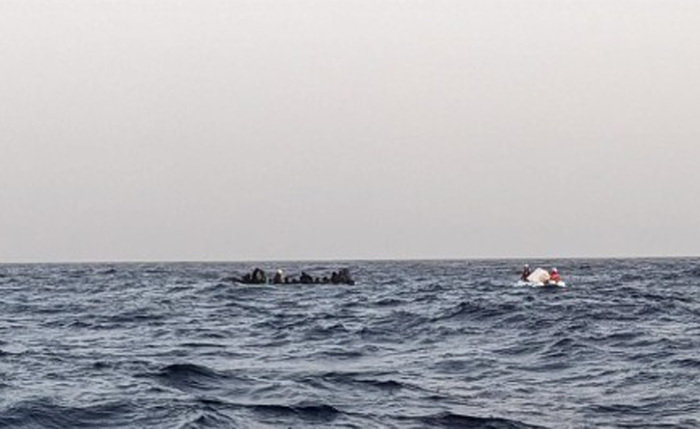My language is now a foreign language.
I forget the correct syntax of simple sentences.
I cut and jumble the words.
I inhale the s.
I use proverbs from a town in the province of Buenos Aires, a rural language to name places that do not even exist in this geography.
It doesn't matter: I invent them.
I cling to obsolete expressions, worn by time.
Whore.
I fear oblivion.
It 's
not
you, it's you.
It's not you, it's you.
And like cats every time they feel afraid, I stop defensive.
Together in my mouth all the artillery to go out to fight.
In what language am I going to write now?
In what language do you write?
Do you feel the same tension?
I repeat these questions in all possible here and there, with the presence of that other colonial language that suddenly becomes a threat.
"Don't talk like that, it shows that you're from Spain and they're going to charge you dearly," her mother told the poet Bernardita Maldonado when she returned to her country on vacation.
For her, going back to Ecuador is like going back as a ghost: “I saw my old room and it was the room of a ghost.
The photos, the clothes eaten away by the sun, faded, I had to see if they were mine”.
Bernadette was born in Loja, near the mountains, and has lived in Spain for more than 25 years.
“My language is Andean, it uses some Quechua expressions, but in my poetry I let the words express themselves, I don't repress them.
If Spanish expressions want to come out, let them come out.
I choose what doesn't seem fake.
Anything that has to do with my essence”.
"Do you win anything?"
—Migration has enriched me with the ability to imagine that other space and imagine it more vividly.
Moving around multiplies our ability to harvest images.
Multiply the imagination.
In his book
Biography of Birds,
he writes: "We know that on the other side of time / there is an empty place of us / that's why we come and go / we come and go / we will always be on the road."
Ale Oseguera was born in Mexico, but has lived in Barcelona since 2006. "I'm not interested in the nationality of the words," he says.
"When I write poetry I never ask myself where a word belongs to, what nationality it has, as long as it expresses what I want to express."
And she continues: “Where is my literature from?
What is the nationality of my texts?
Now that national borders do not exist, hybridity is permanent.
I decide to let myself be contaminated”.
Oseguera also talks about his experience as a columnist on Radio 3, a national station: “I neutralize my accent, by trade, I look for words that fit the speech, but there is a part of me that I cannot, like speaking with zeta.
My Mexicanness is diluted but not reduced”.
In his collection of poems
My face is a map of my body,
which will be published shortly, he writes: “They loaded the ships with feathers and gold.
/ The others, meanwhile, wrote the history of the world in the mud / that the next rain would wash away.
/ We, did we know how to read?
“At first I tried not to lose my Argentine record.
Then you realize that if you live for long years in another country, which is not your country of origin, you
can
not continue to falsify, right?
Obviously, there is a register that changes, that mixes”, says Edgardo Dobry, an Argentine poet who arrived in Barcelona at the end of the eighties.
The parasympathetic
is his last book of poetry from him.
Dobry mentions other Argentines who lived abroad and who were faced with these same problems.
He says that Julio Cortázar clung to his porteño so much when he was in Paris that in Buenos Aires they already said that he used an outdated language.
“Then, the reverse case is the writers who change languages like Héctor Bianciotti to French or Juan Rodolfo Wilcock to Italian”.
Until the Bolaño solution appears.
—Yes, especially the last Bolaño, who said enough!
I don't want to think about this problem anymore!
If it occurs to me to write lavandina I write lavandina;
if not, I write bleach.
I am not going to worry about giving a language credibility with respect to a scenario because in this moment of globalization any lexical record is valid anywhere.
In the poem
Asado en Soldini,
Dobry writes: “And I, fifteen years after / having left this landscape / with a suddenly inexplicable lightness, / I don't know how one can / not live here, not live here”.
I'm at the university.
A teacher asks about his own tradition.
Our fundamental readings.
Question: who are you and what do you want with your literature.
I keep thinking.
The next day, I wake up and read in my notebook: who am I and what do I want with my literature.
To migrate is to translate, even in the same language.
And translating is a form of rewriting.
Nothing matters.
Just a language that includes me.
With that in my mouth, I go out to fight.
Belén López Peiró
is a writer.
The last book of hers is
Where I do not stand
(Lumen).
Subscribe to continue reading
Read without limits
Keep reading
I'm already a subscriber

/cloudfront-eu-central-1.images.arcpublishing.com/prisa/OYP5P7ZXKFHBTFRACQDLOP2COQ.jpg)










/cloudfront-eu-central-1.images.arcpublishing.com/prisa/KMEYMJKESBAZBE4MRBAM4TGHIQ.jpg)


